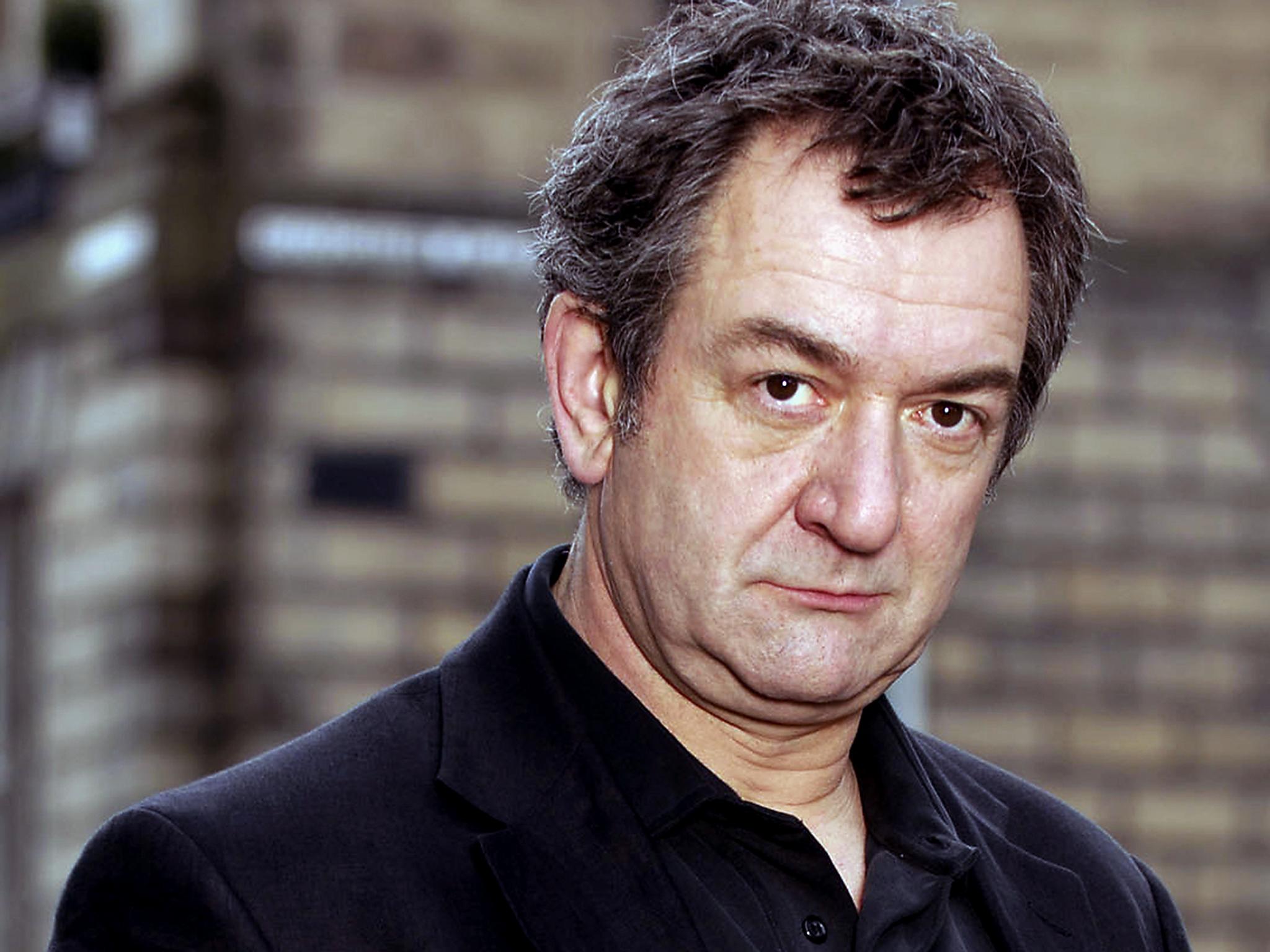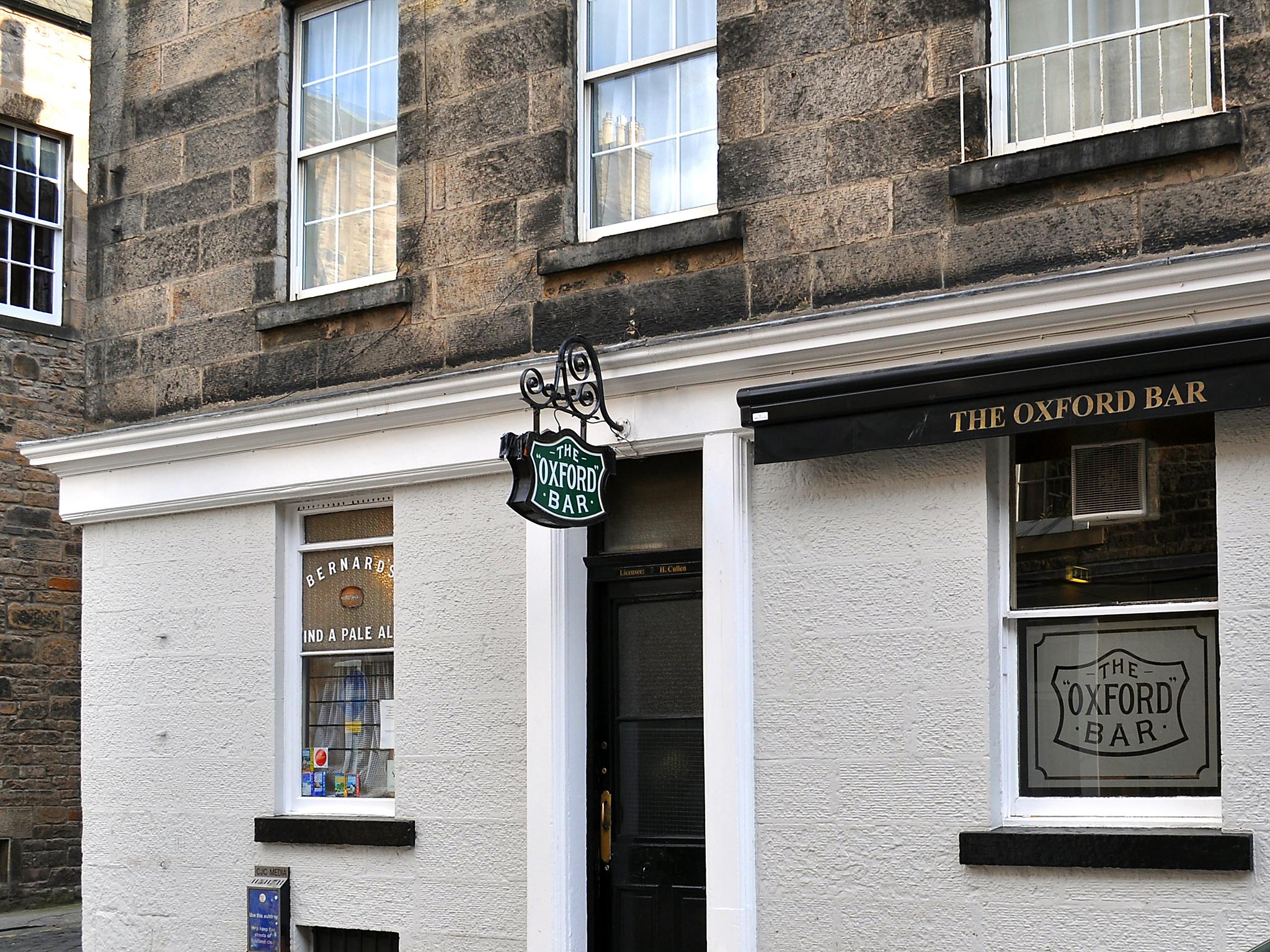How giving up a PhD was the making of Ian Rankin's crime writing novel career
That crime fiction is no longer seen as inferior to ‘literature’ is in part thanks to Rebus, Ian Rankin’s stoic Scots detective, now in his 21st novel and loved by millions. Good job the author didn’t become an accountant, he tells Andy Martin

If not for a poor exam performance, Rebus might never have been born. By rights, Ian Rankin should have been an accountant. It made perfect sense. The only member of his entire family to own his own house and a car was his uncle, south of the border. Who was an accountant. So naturally his parents, bereft of chequebook or credit card, in a small town between Edinburgh and Dundee, thought accountancy was the way to go. They bought him a pile of accountancy text books. But then young Rankin went and buggered up his economics Highers (Scottish A-levels). Economics, grade C. But English, A.
Even then he had a sensible Plan B career path marked out. Qualify as a teacher and return to Fife. Publish poems in obscure magazines. He did his MA at the University of Edinburgh. But then he started a PhD. Which was almost as bad, career-wise, as blowing economics. He had a notion of studying the novels of Thomas Pynchon and got as far as publishing an essay in the journal Pynchon Notes.
But funding was there none. So he ended up working on Muriel Spark instead (Scottish author, funding assured). And then he dropped out anyway. What remains of his doctoral dissertation is gathering dust in a shoebox in his garage. Farewell, promising academic career. Cue, sobbing parents, saying something like (I am guessing here, I admit), “All those years of study, and what have you got to show for it? We told you you should have been an accountant!”
So the mystery is, how does it come about that now, 30 years later, he is Unesco visiting professor at the University of East Anglia? Publishing his 21st novel in the Rebus series, Rather be the Devil, last month, probably has something to do with it, with a string of international prizes and accolades behind him. But a shift in the academic zeitgeist – which Rankin himself is partly responsible for – is also a part of the story.
When Rankin gave up the doctorate in 1986 for a life of crime fiction, Knots and Crosses was already with a publisher. A novel about a serial killer on the loose in Edinburgh was seen, even by Rankin himself, as incompatible with rigorous academic research. In those far-off days, the mid-1980s, the creative writing course at the University of East Anglia was headed up by Malcolm Bradbury, author of The History Man, and produced respected “literary” writers such as Booker Prize winner Ian McEwan. Now we have a dedicated crime fiction MA at UEA, chaired by Henry Sutton, author of the ludic My Criminal World, where Ian Rankin is head guru, and graduate students can submit a novel as part of their MA or “creative PhD”. UEA is now probably, to quote Sutton, “the world’s leading centre for the creative and critical study of crime fiction”.

So-called “genre writing” has been the growth area of the last quarter century. “When I started out,” Rankin recalls, “we crime writers were marginalised, so we had to band together and came up with special conferences of our own (like CrimeFest in Bristol) to provide mutual support. Then the mainstream started to notice we were selling more books than they were so they decided to embrace us and take us seriously.”
Rankin reckons that crime writers of his generation were working-class kids who needed to make it in a hurry. They were dependent, as in his case, on grants, just as the up-and-coming bands of the time often lived off benefits. Which might explain the Rebus fondness for bands. Rankin worries that in the era of rising university tuition fees and costs, potential writer/troubadours like him will be put off and will have no option other than to become accountants.
Not that there is anything wrong with accountancy as such. In fact, for all I know, there may well be one or two accountants in his class. I sit in on a seminar, in one of UEA’s most eco-friendly buildings, which seems to be partly made out of hay, and where the lights switch themselves off almost as soon as you have switched them on. Among the 20-strong group, I discover representation across gender, age, class, nation, accent, and CV. I speak to an architect, Elspeth Latimer, doing a PhD (and a novel, Dog’s Breakfast), and two MA students: a barrister, Harriet Tyce (Blood Orange), and an ex-chalet maid, Caroline Jennett (Where Did You Sleep Last Night?). We talk of auto-erotic asphyxiation, sexual violence, and agents over coffee. As Henry Sutton put it, “It’s not a choice, it’s a compulsion.”
Rankin’s own compulsion as a writer has its origins way back in his childhood in Cardenden, Fife. He constructed a secret private life of his own in diaries that he kept from the age of 12 all the way through till he was 30, when Rebus took over. Unlike, say, Lee Child and Simon Toyne, who started in television and then switched to writing, Rankin has never been anything other than a writer. He constructed an alternate universe for himself by way of escape from the Presbyterian constraints of a “claustrophobic small town”. He invented an imaginary rock band all of his own, The Amoebas. They produced albums (with each track named and described), they went on tours, first around the UK, then more global as they became increasingly famous (still in Rankin’s imagination). They were even interviewed on Parkinson, and each of their gags, and Parkinson’s rejoinders, were recorded in detail in the diaries.
According to the novels, Rebus is a failed SAS guy who joins the police. But he is also, at some level, one of The Amoebas, who never quite made it, but still smokes and drinks far more than is good for him. He is still an anti-institutional rebel, even though technically, a detective. One who spends more time listening to music than chasing villains. He is, to all intents and purposes, a rock star manqué, which I think explains why he is such an incongruous and appealing figure amid the ranks of more austere crime fighters. And why he has such a rapport with career criminals, such as Big Ger Cafferty.
I am honour-bound not to give away all the secrets of Rankin’s methods. For this you need to sign up to the course at UEA. But he did once publish a list of 10 rules for writing. “The three most important ones,” he says, when we have lunch in the campus canteen, “are read lots, write lots and get lucky.” Then he recalls the last one on his list. “Keep on being lucky.” He says you have to be lucky to find a publisher “who believes in you and is willing to bet on you”. He got five rejections before Bodley Head took him on (and later Orion). He once contemplated writing a Mills & Boon and got as far as reading their rubric (no actual sex, please) and dreaming up a plot to do with a cruise ship, a surgeon, and a beautiful but afflicted woman who needs saving.
Knots and Crosses started out as a “game”, he says, an exercise in literary semiotics, largely inspired by Wolfgang Iser’s “reader-response” theory, and drawing on Stevenson’s Jekyll and Hyde. He set it in an Edinburgh that existed largely in his own head. Only gradually did his writing become more realistic and begin to encompass the actual mean streets and pubs of the city itself. At the end of Strip Jack, the fourth Rebus, he ceremonially burns down his fictitious police station and replaces it with the real one on St Leonard’s Street. Now his writing and the city have merged, quite visibly. I took the train to Edinburgh and Rankin took me to the Oxford Bar, where Rebus is a regular.

“I lived in France for six years. So I wrote some of my novels there. But I only had a vague recollection of the Oxford Bar. So I described Rebus resting his foot on a foot rail in front of the bar. When they read it in the real Oxford Bar, they said, ‘But we don’t have a foot rail!’ It was my mistake.” Which was rectified when the owners of the Oxford Bar duly installed a foot rail, so that in future there would be perfect alignment between the world of Rebus and the real world of Edinburgh. If you go to the Oxford Bar and sink a pint or two, rest your foot upon the rail, and thank Rebus.
The writing of each of the Rebus novels falls into three distinct phases. The first draft can be relatively short and comprises the “transmission of information”. Rebus walks into pub, bumps into villain, they exchange words, drink several pints, he leaves. The second draft is more “textured”. Only then does it really start to live as a novel. Rankin breathes in character, humour, ambivalence, conflict, and maybe the occasional metaphor. But mainly jokes.
“Does the name Hamish Wright mean anything to you?”
“Does he have two legs?” the old man enquired.
“I think so – why?”
“Because if he does, he could probably get a game for Rangers, the way they’re playing.”
(Even Dogs in the Wild)
Rankin checks to make sure you really can park your car in that particular spot for several hours without getting it towed. In Even Dogs in the Wild (the 20th in the series) he has Rebus driving several hours from Edinburgh via Inverness to Ullapool, on the north-west coast, to interview an informant. “I drove it myself, to see what it was like. Then I wrote about the places I had seen along the way. I had Rebus stop where I stopped. If I got stuck in a jam, he did.” In the third phase, he gives the second draft to his wife, Miranda, and she helpfully points out everything he got wrong.

He says he spends the first part of every day postponing writing. “I’ll make more coffee, read the newspaper, play sudoku, I’ll do almost anything except write. But once I get started I’m a bit of a Stakhanovite” (with a shoutout to the great overproducing Soviet hero of Stalinist times). He can have on Arvo Pärt or Brian Eno quietly in the background, but – unlike Stephen King, for example – no loud rock music.
Rather Be the Devil is characterised by a warm, glowing melancholia. On the face of it, it’s all about ageing and it switches between crimes of the present and a murder more than three decades past. Rebus has retired, given up fags, and walks his dog, Brillo, when not getting examined at the infirmary (“‘Your body telling you something?’, asks Siobhan Clarke. ‘Aye, it keeps on doing that – I wish to hell it would shut up.’”) Big Ger Cafferty is apparently over the hill. Bruce Collier, ageing rock star, can only recall the glory days through a haze of dope. Characters are, as Rankin says, “dealing with their ghosts”: “Attwood had possessed Hollywood good looks and a dress style to match. With the passing years he had lost both.”
But that doesn’t stop Rebus stealing a march on the real cops or Cafferty from taking a hammer to younger rivals. Maybe it says something about how people never change. They have the virtue of persistence (another of Rankin’s rules).
Ian Rankin, at the age of 50-something, still retains a lot of the Amoebas-loving adolescent boy. He has enough hair for a rock star, most of it flopping over his forehead in a fringe. Early-Beatles moptop style. He has a dark penetrating gaze with a mischievous glint. His main “battle” is against Snickers bars (which he is apt to scoff in idle moments). And while teaching he swigs from a bottle of Coke.
Maybe that is the secret of the successful writer, even if you are a professor, even if you are married with a couple of sons, even if you own a house and a car. Don’t become an accountant. Never grow up.
Andy Martin is the author of ‘Reacher Said Nothing: Lee Child and the Making of Make Me’ (Bantam Press, RRP £18.99). Andy Martin also teaches at Cambridge University
Join our commenting forum
Join thought-provoking conversations, follow other Independent readers and see their replies
Comments
Bookmark popover
Removed from bookmarks